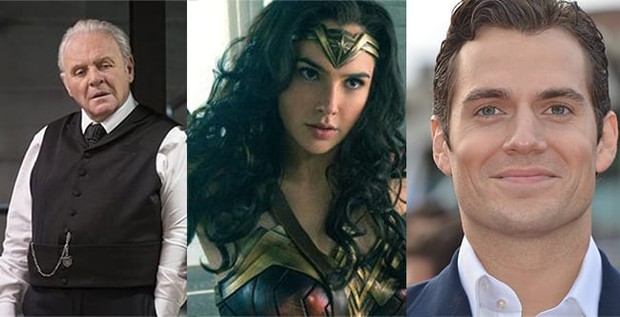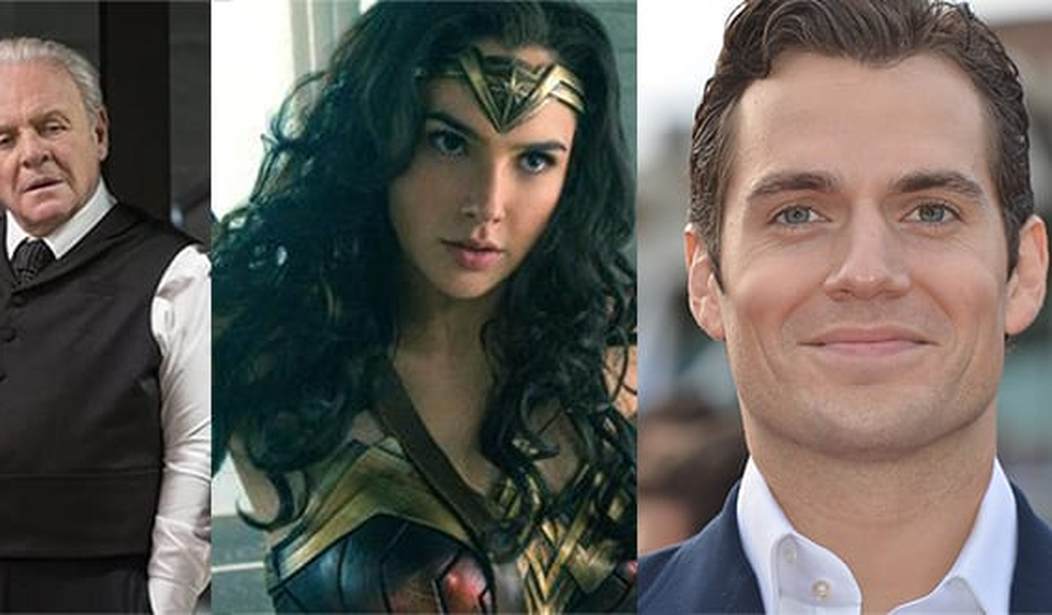
When you’re practically worshiped for simply being on a screen where millions see you, you start to believe that you’re worth far more than you actually are, and what’s worse, that your wisdom is far greater than it actually is.
This has confused many a celebrity into believing that it’s their responsibility to use their platform for political or social change. This wouldn’t be that big of a deal if they had any sort of common sense about them, but due to the very thick coastal bubble that they are encased in, basic wisdom escapes them and they end up promoting things that are extremely damaging to people.
I can’t think of one major Hollywood movement in the last ten years that hasn’t actually ruined the lives of innocent people in its quest to make society “better.”
That’s why when celebrities do get that they’re just humans they tend to approach situations and issues with a little more wisdom than their colleagues. Sadly, these roses among thorns are few and far between, but I think they deserve being highlighted, not just because I like to acknowledge and applaud them for simply not being mean, but because I think celebrities who do get that they’re not our superiors should be rewarded with our business.
Earlier this week I wrote on venerated actor Anthony Hopkins who did an interview with fellow actor Brad Pitt. Hopkins doesn’t really talk much about current events or politics, and while he — being human — definitely has his own opinions and preferences, he doesn’t deem it fit to talk about it with the general public. The answer to why is simple. He’s an actor, not a scholar.
“People ask me questions about present situations in life, and I say, “I don’t know, I’m just an actor. I don’t have any opinions. Actors are pretty stupid. My opinion is not worth anything. There’s no controversy for me, so don’t engage me in it, because I’m not going to participate,” said Hopkins.
(READ: You’ll Love Anthony Hopkins’ Answer On Why He Doesn’t Weigh In On Current Events)
I don’t want to make the leap and say that all actors are stupid — though Hopkins would know better than me — but they have demonstrated an incredible ignorance. Again, this is due to the gilded cage they live in where the information that reaches them is filtered through a very strict leftist approval system. Many of them have zero ideas of what it’s like to live like a normal American and may even look down on the beliefs of those “flyover” yokels.
Hopkins seems to understand what his situation is and, as such, keeps it all to himself. He may believe things that are wildly different from me, but he won’t insult me by preaching against my beliefs from a platform I can’t compete with.
This makes me like Hopkins even more than I already did.
Hopkins isn’t the only one who doesn’t find it necessary to upset or judge fans. Henry Cavill, popular for his role as Super Man but most recently for his role in the upcoming Netflix series “The Witcher,” is also one who seems to have an understanding of people in general.
In the leftist media, there is a common phrase they like to throw around when it comes to people who don’t like the product actors and producers put forth. They call it a “toxic fandom” whenever they get complaints or a movie isn’t well received. You heard and saw this phrase thrown around a lot during discussions about the recent Star Wars movies or the 2016 Ghostbusters movie. Usually, the “toxic fandom” moniker is paired with other descriptors and you can probably guess what they already are.
Men, usually white, misogynist, etc. You can add whatever SJW accusation you want to the list, but “white male” is usually the most common way to describe a “toxic fandom.”
During an interview for “The Witcher” Cavill was being baited into denouncing these “toxic fandoms,” but instead of agreeing and laughing at the fans of “The Witcher” series who have already criticized a few decisions for the show — which includes yours truly — Cavill put forth the idea that these fans weren’t “toxic,” but passionate about the source material.
“When it comes to fans, it is a fan’s right to have whatever opinion they want to have,” said Cavill.
“And people are going to be upset because — especially when we’re talking about books or games — because you’re never going to be the exact person who they had in their head or who they played…on “Witcher 3″ for example,” said Cavill, referencing the wildly popular video game based off the book series of the same name.
“I don’t necessarily consider that toxic. I just consider that passionate,” added Cavill.
This is something that the fans of any given franchise have been trying to say for a long time. It’s not toxicity that plagues the fans, it’s the fact that we love the thing which you’re crafting a movie or television show around and we want respect given to the source material so that we might enjoy what you make.
Cavill understands that when something goes too far off the path created by the source material, people don’t like it, and that’s a perfectly legitimate thing to feel.
A person coming to love a dish will sing its praises and come back to order it again and again. However, if a chef comes in, wildly alters the recipe, and then calls it the same dish, the customer may outright reject it and possibly become angry that his favorite meal has been changed. The customer isn’t mean, he just likes what he likes. Now apply that to an entire city of people who go to this restaurant for that specific meal and suddenly find it completely different. The chef who changed it would feel at the center of a lot of anger.
If the chef was smart, he’d revert the recipe back to the original, but he doesn’t. Instead, the chef makes the case that he’s not wrong, rather it’s the customers who are wrong, and anyone who doesn’t like his meal just doesn’t know food and is likely motivated by underlying prejudices.
That’s Hollywood. In just a few short sentences, Cavill underlined that the fans aren’t the villains at all, they just have a passion for the story they’ve come to love and that if you’re going to take the story and make another story off of it, it’s going to make people angry when you altar things about that world that people appreciate about it.
Lastly, is Gal Gadot.
Earlier today, I wrote an article highlighting how even approaching social issues can be done right, even if many of the viewers have zero interest in that issue.
Feminism has made a very bad name for itself over the past decade as it has become less about empowering women and more about hating men and including other social issues that have nothing to do with women. However, despite the hard-left politics injected into feminism, the Wonder Woman actress has kept her eyes on the prize.
She wants to inspire little girls into realizing that they have power and can accomplish whatever they set their minds to, and that’s a perfectly good thing to do. Gadot has mentally leaped over the most common pitfall of feminism, and that’s the idea that in order to empower women that we have to put down men. It’s a pitfall that actresses like Brie Larson and Elizabeth Banks recently fell into during their promotions of Captain Marvel and Charlie’s Angels respectively.
Larson made it clear that she’s not interested in the opinions of white males about her movie and told us it wasn’t for men. Banks effectively said the same thing but added that if men didn’t come to see her movie anyway, that it’s proof that they’re all misogynistic.
Not Gadot, who made it clear that her upcoming film, Wonder Woman 1984, is not just for girls, it’s for everyone, and that she hopes it inspires more than just little girls to be great.
“I got to tell you. It’s not just for the girls,” said Gadot during an interview with Entertainment Tonight.
“We can’t just empower women only by focusing on women,” said Gadot in her Israeli accent. “We also need to educate the boys and the men. So, ya know, a young boy that goes to see, in the cinema, this amazing woman — does these amazing things…that he believe a woman can do that.”
“It goes both ways,” she added.
Gadot didn’t make the film a member’s only club. She didn’t pit anyone against anyone else. She opened the door and welcomed everyone in with respect, and earned the respect of many in return, including mine. Not that she didn’t already have it.
These actors have not insulted anyone. In fact, they’ve shown understanding about themselves and the people for whom they make entertainment. I can’t say that this doesn’t please me and make me want to go see any films or productions they’re a part of. I want to support that person in their endeavors.
I feel this way, not just because I want to reward them for being a good person, but because I trust this person to make entertainment that I can get behind in the future. That they’ll take the opinions of the people they perform for seriously and thus make a good product.
I don’t think I’m alone in that.















